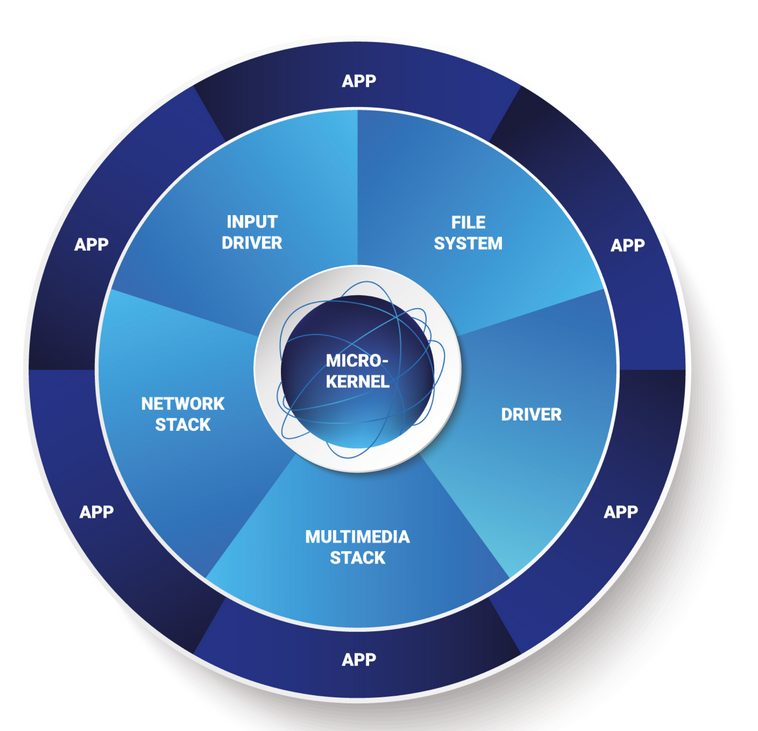
Blackberry could return to making – or at least licensing software for – cell phones, the company hinted on an earnings call, after a $600 million planned sale of its mobile devices, messaging and wireless networking patents fell apart owing to what CEO John Chen described late Wednesday as “turmoil in the financial markets [that] created unexpected challenges for the original financing syndicate", complicating the January 2022 deal.
The Blackberry patent sale is something of a frustrating sideshow for the company, which is growing robustly across its embedded software portfolio: “We understand that the length of time that this has taken is frustrating for shareholders, and we are equally as frustrated, if not more, as we work on it every day” Chen added: “However, we firmly believe that divesting the portfolio remains the best option for shareholder value. While the portfolio is still relatively fresh, the IP… and the business of monetizing it, it's not related to our core business.”
It had first announced the Blackberry patent sale on January 31. The initial consortium hoping to buy the patents lost exclusivity in June as it struggled to secure financing. Chen said on Blackberry’s Q2, 2023 earnings call on September 28 that "there has been much interest from other parties wanting to take their place" but that despite commitment to divestment Blackberry was keeping its option open however should an alternative buyer not emerge: “[We are] finalizing our plan to restart the monetization engine ourselves should that be necessary.”
He did not provide details on what that "engine" might look like. (TCL, the company that licensed the BlackBerry name for mobile phones and produced several models, let its license with BlackBerry expire in August, 2020.)
Blackberry reported total company revenue of $168 million. Cybersecurity revenue was $111 million and IoT revenue was $51 million. Net losses for the quarter were $50 million, down from $144 million year-on-year.

Blackberry QNX: Aerospace and beyond?
Blackberry’s embedded operating system QNX is now in over 215 million vehicles meanwhile. The company – once best known for its phones and BBM messaging – has carved out a strong niche for itself in automotive applications, with Volkswagen selecting BlackBerry QNX for its new vw.os platform and the real-time operating system (RTOS), hypervisor and middleware now embedded in seven of the China's 10 largest EV OEMs.
Reporting its earnings late Wednesday, Blackberry – which also has a range of cybersecurity offerings – said its Internet of Things (IoT) segment that QNX is part of, reported 28% year-over-year revenue growth from development fees and professional services,.
The company’s fiscal Q1 2023 was the third consecutive quarter that it had set a record in this category. It expects full-year IoT revenue to be $200-$210 million. executives said.
Now the company is also eying the aerospace sector.
“We likely will work through large system integrators like Raytheon and [Inaudible], but that's the extent that I can share at this point” Chen told curious analysts, having earlier flagged that Blackberry had announced additional support for the aerospace and defence market earlier in the quarter, with QNX achieving the latest technical standard known as the Future Airborne Capability Environment, or FACE. (That’s a software standard, jointly developed by government and industry that establishes a common operating environment and enables the reuse of software components across different hardware, “reducing developer friction, and costs.”)
Big Tech has muscled into the automotive space meanwhile and large auto companies are also working to in-house more of their software capabilities for in-car "infotainment" systems. Is that not a threat, one analyst wondered? To Chen, the answer was a nuanced "no". As he put it: "OEMs are taking more control of the design, the stack, the software stack -- but they also know that they can't just sit there and replicate their operating system and get it certified. Now some people try to use say Automotive Grade Linux, AGL, but AGL couldn't get it certified, and it's open source... has its own business challenges to it. So, they gradually all came back to QNX.
"Having over 200 million cars that use our software today effectively [that's a] pretty sizable market for a lot of other players to ignore. This is why a long list of players all use us as a foundational piece, and we'll continue to expand application or different types of features in that foundation base" he concluded.
Blackberry cybersecurity was in line with expectations. The company cited customer wins across HM Treasury, the UAE Ministry of Presidential Affairs, the New Zealand Parliamentary Services, the Australian Electoral Commission and the Polish Ministry of Foreign Affairs, suggesting a particularly strong public sector customer base.
